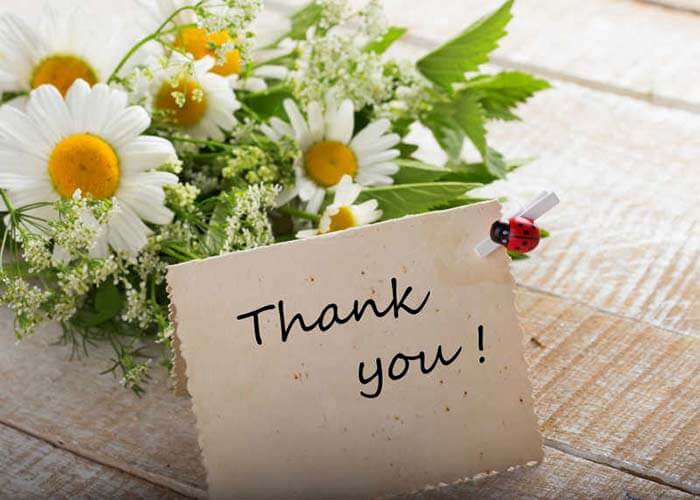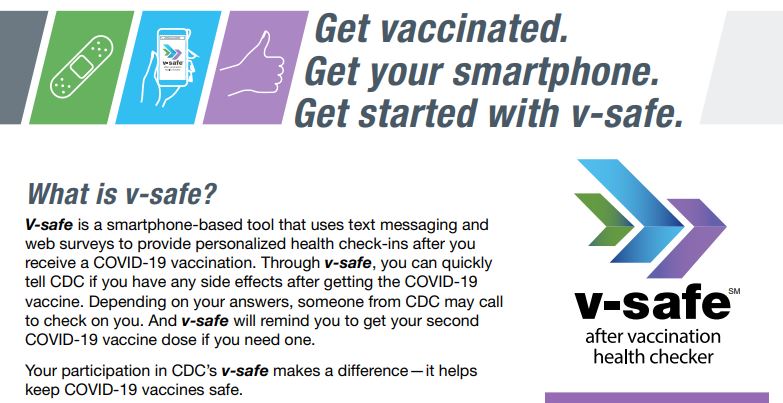
If you know only one language and you’re going to travel to a new destination where nobody understands your language, you’re most likely to be introduced to one of the few frequently-used survival phrases. “Thank you” is definitely one of them. I remember when I was in Japan as a tourist, the locals were so pleased to hear me saying “ありがとうございました,” meaning “thank you” in Japanese. My Eastern Asian appearance and polite temperament could easily gain some points of closeness from the locals. I was lucky to meet friendly Japanese acquaintances, too. They usually continued to speak Japanese at a normal speed to me. I repeated saying “thank you” in Japanese and bowed my way out.
Saying “Thank You” is an ice-breaker. Recently I had a professional cleaning crew to my home for a job. The crew was composed of four Hispanic women. Only the head understood a little English. And thank goodness, I also know a few words of Spanish, among which is “Muchas Gracias!” So when I bumped into a cleaner in the kitchen, I acknowledged her hard work and said “muchas gracias” to her. She smiled back to me. I felt good that I could practice Spanish with a native speaker. At least she understood my poor pronunciation.
“You’re a very kind person,” said the head in English to me. I was taken aback by her compliment and I must have looked bewildered.
“Not many people appreciate our work and say ‘thank you’ to us,” she said. “We have many clients with big houses and it takes us more time to clean their homes. They don’t talk to us knowing we’re not good English speakers.”
This was my first time to have a cleaning crew to the house. But it was definitely not the first time I spoke to a Hispanic worker in English about their low-pay job, dangerous work condition and their impression about life in the United States. (The term “American life” is too broad especially Mexicans are also Americans.) Fortunately, their English is better than my Spanish.
I didn’t know my “muchas gracias” meant so much to almost every Hispanic worker that had been to my house over the years to help me solve a long list of homeowner’s problems. In fact I admire their stamina and professionalism. With their skills and labor they’ve earned every penny they deserve. I empathize the true honor of being a skilled professional on them. I joked with the cleaner that she made more good money than I did as I was between jobs.
Believe it or not. It was my appreciation for other administrative professionals so I gained appreciation back from them. During my job search, I notice that administrative professionals have been truly underappreciated. When I was administrative assistant in a low-profile company in America, I was surprised that my supervisors were thoughtful to celebrate the annual Administrative Professionals Day, which usually falls in April, together with me and my counterparts. In my supervisor’s view, my role was comparable to an office manager in Hong Kong. But in the U.S., an administrative assistant is often considered to be a less-educated, uninspiring person—most likely a woman—in a dead-end position to management. As a passionate linguist, I certainly have spent a lot of time studying the language of the job ads for this pathetic role in comparison with those for the leadership positions. The unwritten secretarial stigma remains today in 2021. And I want to say, without the backbone office managers, none of a team in an institution, an organization or a company will function smoothly.
I say “thank you” many times to the receptionists at a doctor’s office, the assistants of my professors, the human resources specialists that I encounter, and to myself as a former administrator. If you’d like to say “thank you” to your administrative colleagues and know how fortunate you are to have them in your team, Robert Katz’s 1974 article in the Harvard Business Review is still current and true. Administrative assistants are not just women and men who bring a cup of coffee to your desk, print files, make phone calls and run errands for you. They’re visionary angels and our reliable sources in our professional life. Thank you, office angels!
One more month I will come to an end of the second year of the pandemic. As I told my friends at home and abroad, what are the odds for me to live through a pandemic? As of November 1, more than five million people around the world are dead in the Covid-19 pandemic. Many more people are either depressed or suffering suicidal thoughts as a result of the loss of loved ones and job insecurity. That number globally is underreported.
I say thank you to the medical professionals and volunteers who have saved lives, including the lives of non-humans, and positively changed other people’s life in the past two years, . Whether the life you’ve saved is a Covid patient or a patient of other diseases, working in such a stressful environment for such a long time, I can empathize with your burnout. Hug a tree if you can. I find my deepening connection with Mother Nature is the most grateful thing I discover in the Year of Healing.
If the Covid-19 vaccines were not free to all U.S. citizens, lots of underprivileged people and working professionals who don’t have employer-sponsored healthcare plans would remain vulnerable to the contagious viral disease. Good job to my elected officials and their administrative experts, thank you! I’m grateful that I have my free booster shot. I’m also thankful that my vaccine record is easily accessible electronically. Data transparency is what we need to increase public faith in governance, optimize resources and lower costs in a finite world.

It’s humanity’s misfortune that the rich world cannot take the lead to set an unprecedented example for an equitable and eco-friendly civilization in the 21st century. After all, the developed countries have the most wealth and conveniences in modern times; their citizens have more chronic diseases resulting from unhealthy diets and lifestyles than the people from countries that have malnutrition and a poor living environment. Why can’t the rich world switch to an economy focused on self-realization and self-perfection through altruism? Even though I find kids on the street of Accra, Ghana, are happier playing football than those in the wealthy neighborhoods in the U.S. who are addicted to their digital devices, depression is a common mental problem in both rich and poor countries.
Depression is everywhere among people we meet every day whether or not we know them. Simon Sinek said in the video that as we gain a position in seniority, people will treat us better. The perks we get is meant for the position we hold and for the level we have achieved. I resonate with his viewpoint. I have worked for accomplished senior professionals. Some are my positive role models while a few are the ones that I don’t want to become. (BTW, I don’t support using Styrofoam cups for coffee. How about bring your own cup?)
I might have my bias about working professionals in America. Who doesn’t have a bias or two? As a minority in this country, my own experience as a victim of discrimination would not mean to anyone who lacks empathy and compassion. My sensitivity of discrimination is no different from my Caucasian friend and my Black British friend who visited me in China years ago and told me Chinese people stared at them in public and asked them taboo questions to a Westerner such as age, marriage and salary. However, I told them that they got the full-time job with a foreigner’s pay which was three times higher than a Chinese teacher’s salary. Why did educated foreigners get higher pay in China? I often asked. Why can’t Chinese professionals be treated like a royal in an English-speaking country?
During my job search this year, I had the front row seat to experience diversity washing across sectors in America, including science-based institutions and NGOs with household names. Bureaucracy and red tapes abound. China has them. The U.S. has them. Guanxi(關係), literally meaning relationships and networking in Chinese, does not only do magic to a person’s career in a Chinese society but also in many societies that pursue fairness and transparency. My late parents used to say I must get up where I fall on my own. I’m grateful that I’m becoming a better human in each fall in my life. I can’t change biases and misconception in our society about who I am. I can change mine about others. Thank you to my parents.
I am grateful that I’ve found my healthy path to live and learn with a kid’s curiosity. I lost my birth mother but I have reconnected with another mother named Mother Nature since the outbreak of Covid-19. It’s beyond my comprehension why a child’s world can be so pure and simple whereas an adult’s world is so competitive and complicated. Albert Einstein famously said, “Everything should be made as simple as possible, but not simpler.” Rabindranath Tagore also said, “It is very simple to be happy, but it is very difficult to be simple.”
Being simple is what I would like my writing to be. However, the more I learn, the easier I am lost in the complexity of our algorithm-driven world. No wonder it is difficult for me to achieve simple writing. I blame that for the fact that the more educated people are, the harder it is for them to simplify their way of thinking, writing and speaking. The basic skills of human interaction are chipped away by the conveniences that the Internet of Things have brought to us. I often joke with my friends who ask me what is carbon tax and how does it work in China. “You’d need to ask a supercomputer instead of a simpleton like me,” I say. Generally speaking, simple people know how to solve problem easily. Complicated people know how to create problems for themselves.
“When you are not in touch with your feelings it can be hard to distinguish between a healthy attraction and an unhealthy addiction. But if you can get in touch with your childlike qualities, your body will let you know if you are making the right choices and if your feelings are genuine.”
—Dr. Bernie Siegel
What Dr. Siegel has said echoes with the Chinese phrase, “赤子之心,” meaning a pure heart of a newborn baby. I’m grateful that my childlike heart is not dead yet. If the world leaders had a child’s heart to make a decision for the future of their young and unborn citizens, perhaps they will be more liked by their citizens and voters. They will find common ground much bigger than what they are hardwired to believe as an adult. After all, no matter what long-term decision they make today, the results usually won’t occur after their death. If hiring managers had a child’s heart to select talents, perhaps they won’t rely so much more on algorithms and computation than their human curiosity and empathy. If ordinary people like you and me have a child’s heart, perhaps we will be more grateful for what we have, instead of lamenting what we don’t have.
Thanksgiving can happen every day. Be thankful to others lifts me up. I have two videos to share as my gratitude to people who have helped me get through tough times in 2021. Our blue planet is getting warmer, unfortunately. I hope the feeling of human connection is also getting warmer, too. I feel encouraged and motivated when I watch nine-year-old Enael in the video asking good questions to French Climate Ambassador Stéphane Crouzat, and when kids in Egypt started an art project and made music out of recycled waste. Thank you for hanging on with me.
